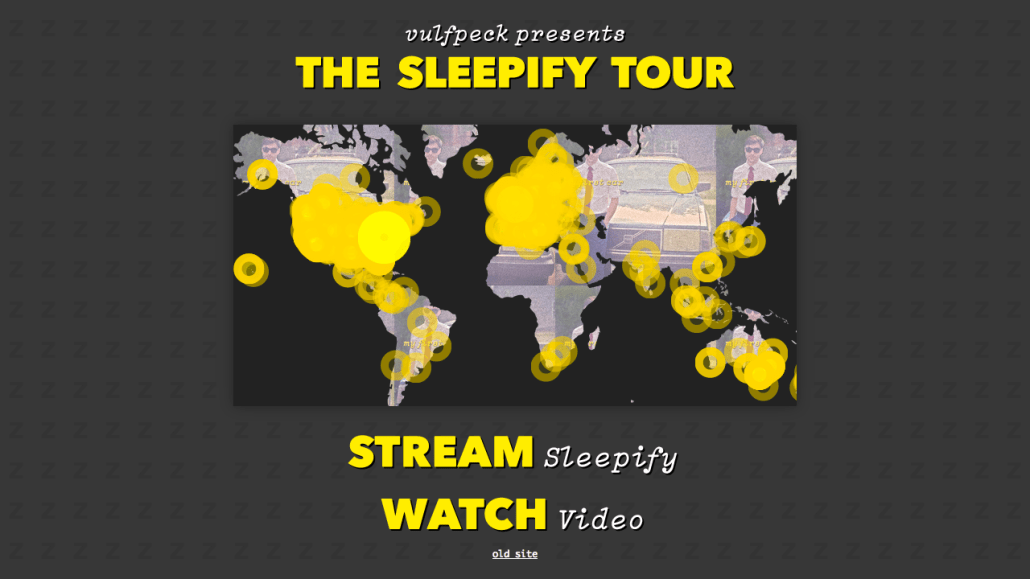Secure your place at the Digiday Media Buying Summit in Nashville, March 2-4

Musicians frequently fret about music streaming platforms providing insufficient compensation. Radiohead frontman Thom Yorke, for example, has been a vocal Spotify critic, pulling music produced by his side-project Atoms for Peace from the platform last July.
And it’s not about to get any easier for musicians, either: The American Society of Composers, Authors and Publishers (ASCAP) lost a lawsuit against another streaming platform, Pandora, in which they were seeking higher royalties for songs streamed.
But funk rock outfit Vulfpeck thinks it can make enough money from Spotify to not only cover the costs of an entire tour, but to not have to charge admission to any of the shows. The band has released an album of complete silence — no sounds whatsoever — on Spotify and is encouraging fans to listen to it while they sleep. The 10-track, 316-second album is appropriately titled “Sleepify.”
Vulpeck is also planning to route the tour based upon which cities streamed “Sleepify” the most, thus incentivizing Spotify users to tell their neighbors about the noiseless album. Since Spotify pays Vulfpeck a half a cent per stream, Vulfpeck calculates that a users can help the band earn $4 by streaming “Sleepify” on repeat during a seven-hour sleep session.
Vulfpeck member Jack Stratton has made a YouTube video promoting the album and subsequent tour.
While innovative, the marketing campaign could also be construed as slightly unethical. Advertisers don’t like paying for non-human clicks on their banner ads or fraudulent likes on Facebook, so a music streaming service wouldn’t necessarily be keen on shelling out money for streaming silence. (Vulfpeck did not return a request for comment at time of press.)
Spotify has always been quick to defend its position as a platform aimed at helping musicians make money from streaming music, and, for its part, Spotify appears to have a sense of humor about “Sleepify.”
“This is a clever stunt, but we prefer Vulpeck’s earlier albums,” a Spotify spokesperson said. “’Sleepify’ seems derivative of John Cage’s work.”
The platform is not divulging how many times “Sleepify” has been streamed so far. If you’d like to support Vulfpeck’s tour, you can listen to “Sleepify” below. Or, rather, not listen to it.
Image via Vulfpeck
More in Media

From feeds to streets: How mega influencer Haley Baylee is diversifying beyond platform algorithms
Kalil is partnering with LinkNYC to take her social media content into the real world and the streets of NYC.

‘A brand trip’: How the creator economy showed up at this year’s Super Bowl
Super Bowl 2026 had more on-the-ground brand activations and creator participation than ever, showcasing how it’s become a massive IRL moment for the creator economy.

Media Briefing: Turning scraped content into paid assets — Amazon and Microsoft build AI marketplaces
Amazon plans an AI content marketplace to join Microsoft’s efforts and pay publishers — but it relies on AI com stop scraping for free.





